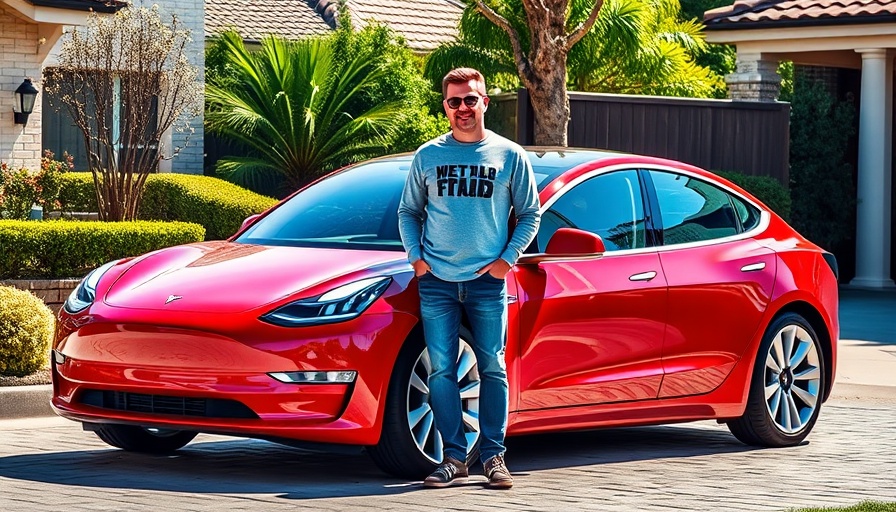
Sudden Shift: Why Record Tesla Trade-Ins Are Soaring
A significant cultural and market shift is unfolding as Tesla owners are choosing to part ways with their electric vehicles, driven largely by controversial political developments surrounding Elon Musk. Recent data shows a notable rise in trade-ins for Tesla cars, increasing from 0.4% to an impressive 1.4% this year, indicating a growing discontent among holders of the brand.
The Complex Web of Consumer Sentiment and Choices
Trade-in statistics provide an illuminating view into current consumer sentiment regarding the automotive landscape. According to Edmunds, Tesla cars from the 2017 model year or newer are making headlines as they accounted for 1.4% of all vehicles traded in as of March 15, a marked rise from previous years. Industry analyst Jessica Caldwell points out that this surge could open the door for legacy automakers and new electric vehicle startups to capitalize on an emerging market of disgruntled Tesla owners.
A New Era of Competition: The EV Landscape
With the advent of strong competitors emerging in the marketplace, the increased trade-ins could also signal a shift in consumer preferences driven by various factors beyond Musk's political affiliations. From increased competition among EV manufacturers like Rivian, Lucid Motors, and traditional carmakers launching their own electric variants, customers are not solely leaving their Teslas due to Elon Musk’s controversial actions, but are also exploring alternative options that align better with their values and needs.
The Impact of Musk's Political Influence
Musk's polarizing association with political figures has incited a divided response from consumers and the general public alike. As public sentiment shifts, numerous Tesla owners report feeling targeted and unsafe due to the political climate surrounding their affiliation with the brand. This negative perception has created animosity among non-Tesla consumers, leading to verbal confrontations and even physical vandalism against the vehicles themselves.
Public Reputation and Brand Loyalty: What’s Next?
With Tesla's reputation it at stake, the question remains whether the company can recover from this sentiment shift. With a rise in trade-ins, Tesla faces a pivotal moment that could redefine not only how they engage with their users but also how they navigate the complex social and political dynamics in which they now operate. Consumers increasingly seek brands that reflect their values, as cited by singer Sheryl Crow when she remarked, "There comes a time when you have to decide who you are willing to align with." This sentiment rings true for many current Tesla customers.
The Bigger Picture: What This Means for the Future
The data suggests that upcoming trends are about more than just Tesla's market share; they're indicative of changing consumer landscapes where values reign paramount. As more consumers weigh their allegiances, Tesla's ability to hold onto its customer base could depend significantly on its leadership and the public relations strategies they employ moving forward.
This situation represents a crucial turning point in the automotive industry that should not be underestimated. Consumers interested in the latest automotive technologies and market trends would do well to observe how this benefit translates to market dynamics.
Whether this trend signals a long-term shift in electric vehicle ownership or merely a transient phase remains to be seen. However, one thing is clear: it’s a pivotal era for Tesla as it navigates current societal currents that impact its reputation and market position.
 Add Row
Add Row  Add
Add 




Write A Comment